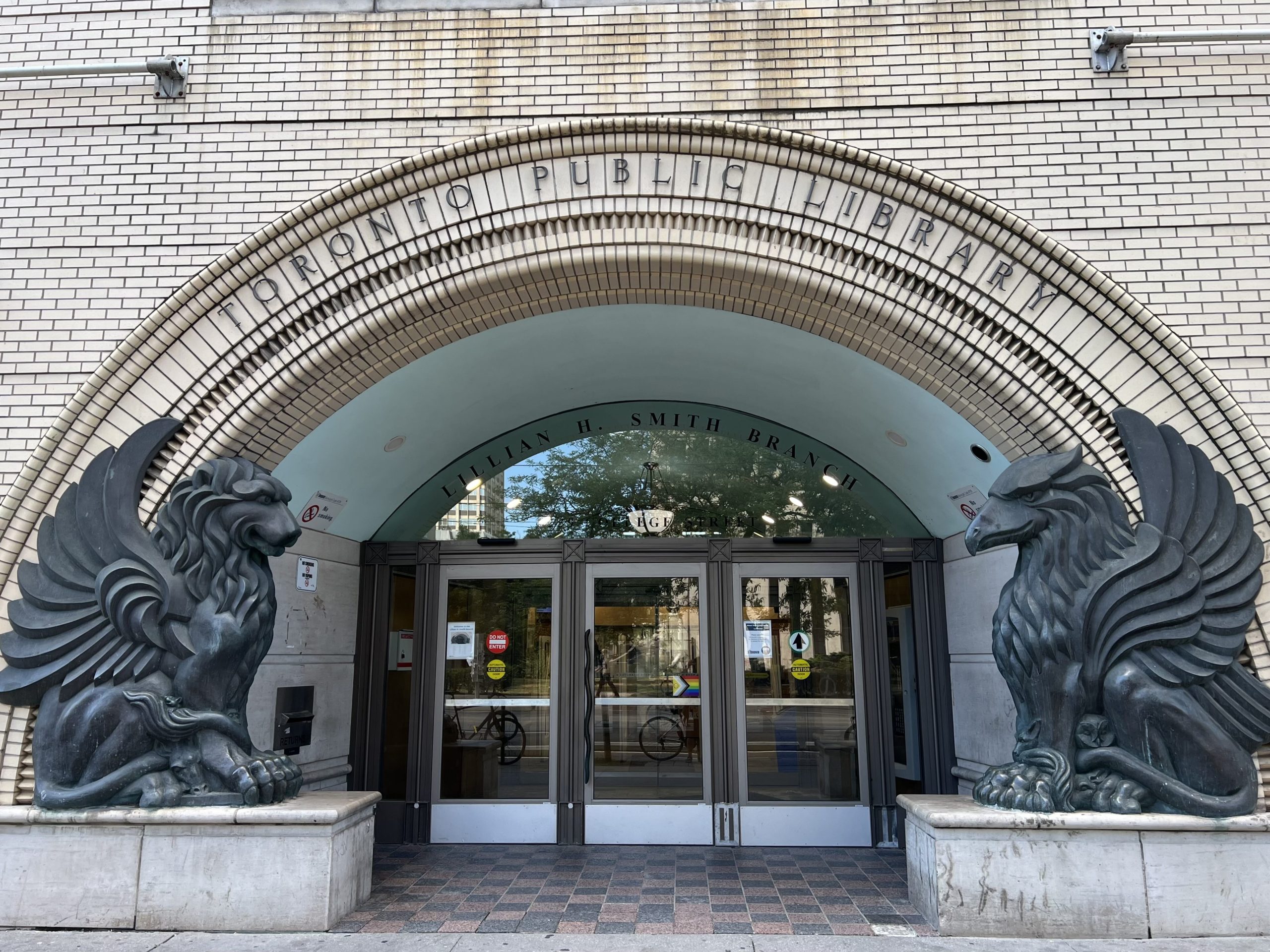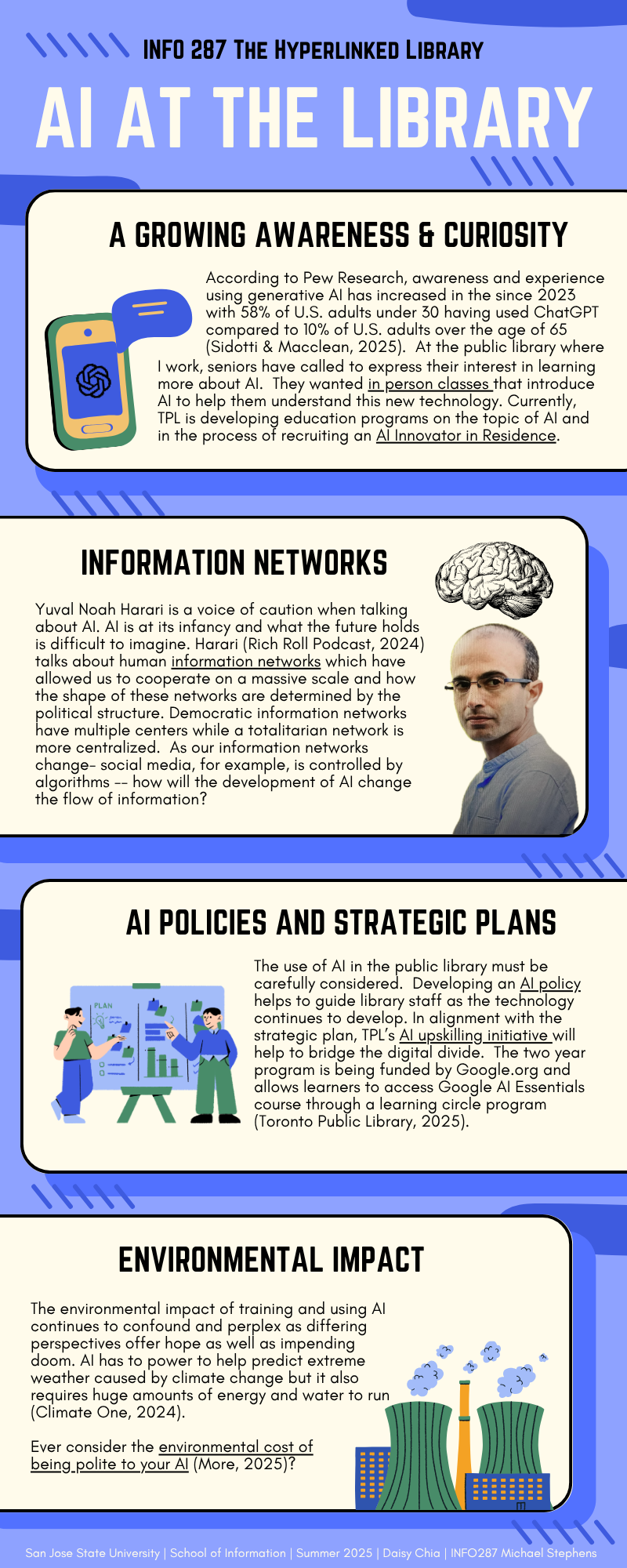The library is a space for infinite learning. It is the place for anyone to access books and materials about any subject, for free in most cases. The kind of libraries* we are talking about also allow the public to access technology classes, history classes, art classes, all in person and for free. Virtual programs for all ages are also available. The library also gives library card holders free access to online courses which allow them to earn a certification, add skills to their LinkedIn or resume, learn or practice a new language, and so on. This answers the question:
“In a time when most people turn to Google on their mobile devices for quick answers, what type of learning experiences can the library provide? “ (Stephens, 2014).
The library has transformed, with the advent of the internet, expanding their offerings beyond containers of knowledge towards education and access to technology. But technology is ever changing. This requires libraries to offer their library staff professional learning opportunities to keep up with changing times. In 2006, Helene Blowers created Learning 2.0: 23 Things at the Public Library of Charlotte and Meclenburg County, to help information professionals learn about Web 2.0. It consisted of 23 tasks help them get familiar with things setting up a blog, exploring Flickr, setting up an RSS feed, etc. This program inspired hundreds of other 23 Things! As online students, we are pretty familiar with these although some things have changed in 20 years. It seems that Flickr images and longer form blog posts have been replaced with social media and TikTok videos.
“A computer would deserve to be called intelligent if it could deceive a human into believing that it was human.” –Alan Turing (Curtin University, n.d.)
Artificial intelligence is the biggest new technological change we are facing. As people debate about its advantages as well as very negative effects, technology companies and governments continue to invest heavily in its development while removing any safeguards; while also cutting off funding from libraries, our pillars of democracy. Meanwhile, as librarians, we must learn about AI in order to better serve our public. The Toronto Public Library (2025) is offering a class called What is Artificial Intelligence? A centrally designed slide deck presents provides an overview of the technology for a general adult audience. On further exploration, I found a 23 Things: Thing-AI. As librarians, we must keep learning in order to teach, and this could be a good place to start. Naturally, it was created with the help of ChatGPT (Curtin University, n.d.).
*Side note: I was born in the Philippines and still have a lot of family there. On a visit a few years ago, I walked to the local public library. It is located beside City Hall and is a building with a shell on the roof. Doesn’t it sound like a library from a Haruki Murakami book? Inside, the library is small and the collection was limited. Libraries need funding to maintain their collection and provide the services mentioned above. My dad asked me on my return, “Why did you go?” Recently my dad and my brothers visited me in Toronto. I took them to the Toronto Reference Library and they were surprised to learn that anyone can come here to read, access computers, use the free Wi-Fi, and attend programs for free. They were impressed by the donor list at the entrance of the library. A reminder that libraries cannot thrive without funding.
References
Curtin University. (n.d.). 23 things: Thing-AI. https://23things.library.curtin.edu.au/portfolio/thing-ai/
KlingonSpider. (2012, April 8). Hal9000: “I’m sorry Dave, I’m afraid I can’t do that”[Video]. YouTube. https://www.youtube.com/watch?v=ARJ8cAGm6JE
Lemuel “lem” B. (2019, July). Mandaue City Public Library [Photograph]. https://g.co/kgs/4vkG7Zi
Stephens, M. (2014). Making the case for the library as a space for infinite learning. https://www.dropbox.com/scl/fi/4zt1yliwb2ffzr8euix2p/YLibraryInfiniteLearning.pdf?rlkey=m0v6lkd43ufilkp5aktawhlpr&e=1&dl=0
Toronto Public Library. (2025). What is artificial intelligence? https://www.torontopubliclibrary.ca/detail.jsp?Entt=RDMEVT561987&R=EVT561987
23 things – 10 years later. (2017, March 13). Library Journal. https://www.libraryjournal.com/story/23-things-10-years-later




